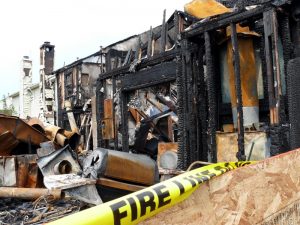By: Stuart J. Visnov, CEO, Echelon Protection & Surveillance
Word count: 817
 Understanding the industry
Understanding the industry
The U.S. Department of Labor statistics reports that there are over 1.1 million private security guards in the U.S. working within about 10,000 companies. The exact numbers are hard to determine because the industry standards vary nationally. Some states mandate unarmed and armed security guard licenses and others do not. In states that don’t, the individual security companies are responsible for vetting and training their own guards. For instance, in Pennsylvania, a person with a private detective’s license hires security guards to work under their license. In New Jersey, each guard must obtain their own license to be certified as a security guard. In addition, a national security company doesn’t need a license to operate in every state, they only need a relationship with a state licensed security company to do business in that state. The better you understand the security industry, the more informed your decision will be when hiring a security partner.
Choosing the right security partner
The key to finding the right security partner is to consider what services you’ll require, and communicate those needs or concerns to your perspective security partner so they can develop a solution. Will you need unarmed guard who can interact with the public or an unarmed overnight patrol guard with technical abilities? Should they be bilingual or have any special training or certifications such as first aid, management of aggressive behavior, or access control? Should the guard wear a uniform as a visual deterrent or be casually dressed to fit your brand. The possibilities are many, but the more you consider what you’ll need, the better they can provide the right security solution. If you’re unsure of what you may need, start with asking if the security company has direct experience working in your industry.
How you know if guards are doing their job?
Most security companies sell themselves as having experienced guards that will be on-time, stay alert, and respond appropriately when an incident occurs. However, how do you know what your guards are doing when you’re not watching them? The solution is a GPS based guard reporting technology that verifies check-in/check-out, and documents patrols and duties so you know exactly what you’re paying for. Technology like this should be standard with any reputable security company, and it gives the client the ability to track guard activity, confirm billing hours, and protects against liability.
What’s a consolidator?
In the security industry it’s common practice for large companies to outsource their work to smaller regional companies. The consumer thinks they’ve contracted a regional security guard provider, but they’ve actually hired a national security guard “consolidator.” Here’s how it works: When you call for local service, their telemarketers quickly contact several security companies in your region to try to cover your request. Consolidators make their money on volume by marking-up the price of the companies they use to fulfill your request. Using a consolidator effects the quality of service because they’re often not familiar with the security companies they’re outsourcing to. Their entire business model is telesales and paperwork. To determine if you’re speaking with a consolidator, ask them if they outsource to other security companies. If they say yes, ask them how long they’ve been working with the company providing your guard services and how those guards are trained.
The right size means the right service.
As with service providers in any industry, size is important. If you’re security partner is either too big or too small, customer service may become an issue. Although the big boys can provide a range of professional services, they often fall short on personal attention and responsiveness, because you’re just one of a thousand clients. At small security companies you’re important because you’re one of 25-50 clients, so you’ll often have access to the owners or decision makers. However, these smaller companies very often lack organizational infrastructure, so they struggle with basic back office operational challenges such as answering phones, invoicing and guard recruiting.
Rates and terms of agreement
Respectable security companies will ask you the right questions and then suggest the proper services and hourly rates. Fees are based on standard hourly rates that vary based on factors such as: type and level of service, response time, location, length of job, risk or known threat.
Ask for references
When it comes to hiring a security firm, it pays to do your homework. A security partner is like a walking, talking insurance policy. So, take the time to research several companies, review their websites, and contact your top three. Start by asking if they’re licensed, bonded and insured. Then, inquire about their services, infrastructure, and experience in serving your industry. Lastly, request a list of client references and speak with at least 3. The right company will take the time to meet with you to discuss your needs, provide insights and review your final security agreement until you’re satisfied.




 In the 2 weeks between Part One and Part Two of this blog there have been 2 more “mass shootings.” On June 17, 2018 at least 17 people were shot at an Art Festival in Trenton New Jersey, and last week 5 more individuals were killed in a “mass shooting” in Annapolis Maryland. Please note that the quotation marks around the words “mass shooting” are there to comply with the federal government’s definition in which “4 or more people are shot”.
In the 2 weeks between Part One and Part Two of this blog there have been 2 more “mass shootings.” On June 17, 2018 at least 17 people were shot at an Art Festival in Trenton New Jersey, and last week 5 more individuals were killed in a “mass shooting” in Annapolis Maryland. Please note that the quotation marks around the words “mass shooting” are there to comply with the federal government’s definition in which “4 or more people are shot”.
 If your office or facility employs one or more security guards that perform patrols of your business or campus, you must be certain that your guards are performing their duties while documenting all activity with clear, detailed reports which are reviewed daily and filed for future use.
If your office or facility employs one or more security guards that perform patrols of your business or campus, you must be certain that your guards are performing their duties while documenting all activity with clear, detailed reports which are reviewed daily and filed for future use.
 The past year has been a busy year for everyone here at Echelon. As we look back on 2017, we are reminded that the services we provide play a crucial role in creating a sense of safety and security for our clients. We are also aware that security and safety has become a top priority for many organizations over the last year. Since we’ve put so much thought and effort into developing our exceptional team of security professionals, that we thought we would provide our list of the most important qualities needed to be a top security officer.
The past year has been a busy year for everyone here at Echelon. As we look back on 2017, we are reminded that the services we provide play a crucial role in creating a sense of safety and security for our clients. We are also aware that security and safety has become a top priority for many organizations over the last year. Since we’ve put so much thought and effort into developing our exceptional team of security professionals, that we thought we would provide our list of the most important qualities needed to be a top security officer.

 Sales of legal cannabis are growing at an annual rate of 17 percent and are expected to reach $13.3 billion in 2020, according to a
Sales of legal cannabis are growing at an annual rate of 17 percent and are expected to reach $13.3 billion in 2020, according to a 